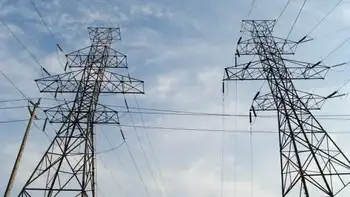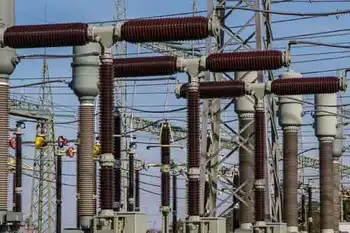http://www.temizlikvehijyen.com/
By http://www.temizlikvehijyen.com/
Protective Relay Training - Basic
Our customized live online or in‑person group training can be delivered to your staff at your location.

- Live Online
- 12 hours Instructor-led
- Group Training Available
Cameco already has set up an office at Hyderabad in Andhra Pradesh, headed by Dr. Chaitanyamoy Ganguly, a former official of International Atomic Energy Agency (IAEA) who earlier donned the role of chief executive of the Nuclear Fuel Complex. The company will start functioning only after a formal nuclear agreement between India and Canada has been finalized. Cameco's focus of operations will not be restricted to fuel supply. The company is hopeful of expanding its business to cover the mining and nuclear technology segments, apart from also looking to participate in fuel conversion and fabrication initiatives.
India was the first country to receive Candu reactors in 1961 and 1972 from Canada. Canadian-Indian ties in the sector were severed as early as 1974, triggered by India's first nuclear experiment. By then, two Candu (Douglas Point) reactors had been delivered to the Rajasthan atomic power station, the construction of which was abandoned abruptly by Canada and completed six years later by India.
A research reactor, Canada India Research U.S. (CIRUS), was already in its 13th year of operation by then. Based on the experience of installing Candu reactors, India further customized the model to create several variants of the Candu design that are running successfully at nuclear power plants in Rajasthan, Kaiga, Tarapore, Kalpakkam, Narora and Kakrapar.
Canada is looking to return to the lucrative Indian nuclear sector, which has an installed capacity of 4,120 MW, fueled by 2 million pounds of uranium per year.
Aiming for a seven-fold increase in installed nuclear power generating capacity by 2020, India is also set to witness an increase in fuel demand to four to five times the current levels. Domestic resources will be able to meet only half the current requirements, and the ventures mainly rely on imports offering an immense potential for fuel suppliers across the globe. With the nuclear fuel embargo no longer applicable after the civil nuclear agreement with the U.S., India has tied up with uranium suppliers Areva S.A. and Tvel Corporation to meet the fuel requirements of existing nuclear facilities.
Competing technologies for projects in the pipeline include pressurized water reactors (PWRs) from General Electric and Westinghouse Electric Company LLC, European pressurized reactors from Areva, and the VVER series of reactors from Russia. However, the relatively safe and familiar Candu reactors are likely to stand a good chance as they are capable of processing varying fuel mixes of both enriched and natural uranium as well as spent fuels from light water reactors.
Between China and India, about 40 new reactors are expected to come up in the nuclear power building strategies of the two countries. Potential opportunities in India have been reported to cost $4 billion per brownfield venture, in addition to $1 billion worth of material supplies from Canada and thousands of jobs created in the process. As most of the new reactors are likely to be placed under the IAEA safeguards in order to utilize imported fuel, the interests of investors in the sector also remain well-protected.
Apart from being keen on finalizing long-term fuel supply agreements with India, Canada is also eyeing a partnership with domestic engineering major Larsen & Toubro Limited to develop an Indian variant of the ACR-1000 Canadian model reactors. However, Cameco plans to enter into joint ventures with Indian counterparts only after the Indo-Canadian nuclear agreement is signed.











